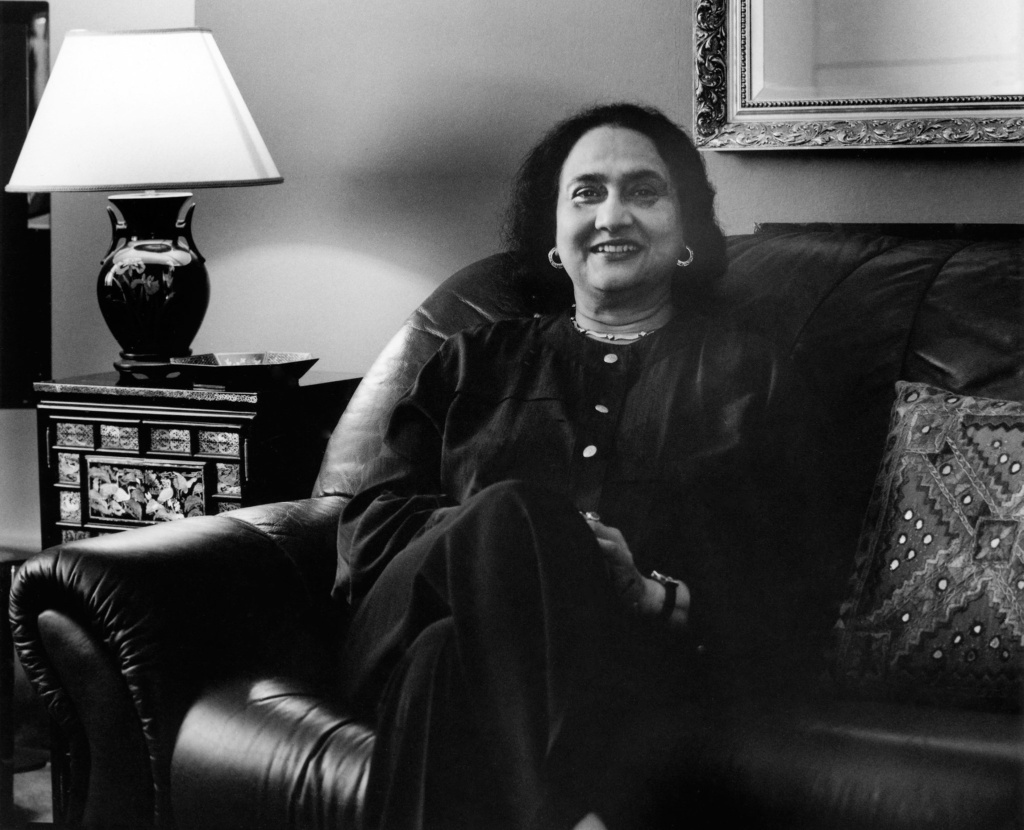 Shanta Acharya is an internationally recognized name in modern Indian English literature. The canvas of her creativity and literary expressions are as vast as the geography of the continents, where she finds her roots and lives to nurture her art and profession. Shanta Acharya, a poet and a writer, is also a successful business professional. She lives in the United Kingdom, where she has received several recognitions and honors for her works in both fields, including ‘lifetime achievement of excellence as a poet’ by Skylark Publications and the Word Masala Project in 2015. On June 22nd, 2016, Shanta received the “Word Masala Award for Excellence in Poetry” at the House of Lords.
Shanta Acharya is an internationally recognized name in modern Indian English literature. The canvas of her creativity and literary expressions are as vast as the geography of the continents, where she finds her roots and lives to nurture her art and profession. Shanta Acharya, a poet and a writer, is also a successful business professional. She lives in the United Kingdom, where she has received several recognitions and honors for her works in both fields, including ‘lifetime achievement of excellence as a poet’ by Skylark Publications and the Word Masala Project in 2015. On June 22nd, 2016, Shanta received the “Word Masala Award for Excellence in Poetry” at the House of Lords.
Her notable works are What Survives Is The Singing (Indigo Dreams Publishing, UK; 2020). Imagine: New and Selected Poems (HarperCollins, India; 2017), Dreams That Spell The Light (Arc Publications, UK; 2010), Shringara (2006), Looking In, Looking Out (2005), Numbering Our Days’ Illusions (1995) and Not This, Not That (1994) and her first novel, A World Elsewhere, (2015). Her doctoral study, The Influence of Indian Thought on Ralph Waldo Emerson, appeared in 2001. She is also the author of three books on asset management — Endowment Asset Management: Investment Strategies in Oxford and Cambridge, with Elroy Dimson (Oxford University Press, UK; 2007), Asset Management: Equities Demystified (Wiley, UK; 2002) and Investing in India (Macmillan, UK; 1998).
Shanta Acharya’s works are the testimonies of her creative brilliance. Her serene yet powerful presence in literature as a female writer of diaspora has inspired a densely rich and thought-provoking conversation now before you.
KSC: You are a widely recognized poet, writer, and business professional of Indian origin in the West. How do you feel about your achievements and success in both fields and what do you enjoy being the most?
SA: I was a poet and writer long before I became an investment professional. Never thought of myself as a ‘poet’ because poetry and music was so much a part of life – in the oral traditions of the Sanskrit slokas or the bhakti songs of Jayadeva, best known for his Gita Govinda, central to the repertoire of music in Orissa, which one heard at home. Even the national anthem was a song by Rabindranath Tagore. It was in Oxford where others saw me as a poet and scholar that I became conscious of being a poet and writer.
As there is no money in poetry, and after being awarded a doctorate in English from Oxford, a rare achievement even today, there were no teaching or research positions when I was looking for one during my spell at Harvard, I found myself working in the City, in London, for an American investment bank. Such are the vicissitudes of life! The qualities that make a poet helped me with investing. Investments and finance also contributed to my poetry – certainly by paying the bills and providing me with a level of ‘vulnerability’ that enriched my understanding of the world.
I have never seen Life in terms of achievements or success as judged by others. Anything worth doing is worth doing to the best of one’s ability, which has its own reward. The giving of pleasure in poetry being its primary objective, I enjoy poetry. And investing? It has much to do with ideas, with one’s interpretation of how the future might unfold. Every time one’s ideas are understood, one’s creations are appreciated and endorsed, it brings not only joy but a sense of belonging.
KSC: You write poetry, fiction, literary criticism, and more. What do you like writing the most and why?
SA: Poetry gives the most satisfaction as one can express a range of emotions and ideas with the utmost economy. I am, of course, referring to shorter, tighter forms such as a lyric, sonnet, haiku etc. A novel is more like an epic, setting off on a long journey where you are surprised by insights you discover, quite unexpectedly, along the way. Imagine the difference between The Mahabharata and a brief extract within the epic, a stanza containing a thought compressed like a fly in amber. The Mahabharata is several novels in one. Taking into account the demands on my time, it is more efficient and satisfying to write poetry. Maybe, these are the limitations of being a woman. You learn to express yourself economically.
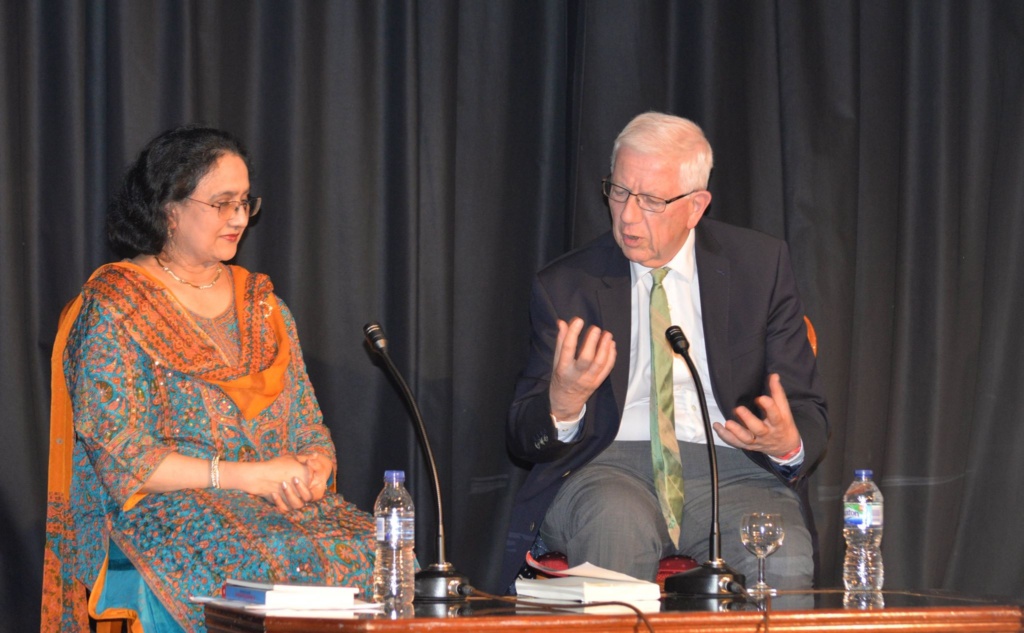 KSC: How do you find your work different from what is being written in mainstream English literature today? Please talk to us about your unique contributions as a diaspora writer.
KSC: How do you find your work different from what is being written in mainstream English literature today? Please talk to us about your unique contributions as a diaspora writer.
SA: This question is interesting. How does one define ‘mainstream English literature today’? Is there such a thing? There is literature written in English, which by itself is such a crowded field that finding a place to stand, let alone shine, in that universe is more a matter of luck than skill. Like most dedicated writers, I write because it is a vocation, not a career. I have been writing for as long as I can remember, and I represent myself. The question then is: Who am I? I am a human being first. All my other identities are secondary – woman, poet, writer, Indian, diaspora, etc. As a woman I am all too aware of our inequitable lives. My Indian identity plays an integral role in the way I see the world. Poetic self-consciousness is defined via negatives, not unlike the attributes of the Divine – ‘neti, neti’ or ‘not this, not this’. For Keats a poet needs ‘Negative Capability’ – ‘when a man is capable of being in uncertainties, mysteries, doubts, without any irritable reaching after fact and reason.’ Applies to women too. For me, writing is a form of prayer, my way of connecting with the universe. As far as my contribution as a diaspora writer goes, my books I hope, speak for themselves.
KSC: Tell us about your background in India and the culture in which you were raised.
SA: I grew up in a traditional Hindu family where the men were academics, scholars, archeologists, administrators, and the women applied their extensive gifts to looking after the family. My paternal grandfather, Paramananda Acharya, was awarded the Padma Shri by the Government of India for his contributions to the field of archaeology and history of Orissa. My maternal grandfather, Ratnakar Sarangi, who retired as the Commissioner for Revenues in Orissa, was a keen mathematician. My father, Brundaban Acharya, founded the Department of Geography at Ravenshaw College. My uncle, Satyananda Acharya, the youngest professor in Geology, later served as the Vice-Chancellor of Utkal University. Education was my life. After completing my Master’s in English, I served as a lecturer in English at Ravenshaw College before I got a scholarship, which enabled me to study in Oxford.
My mother, Rashmi Rekha Acharya, was a writer. But, the women in the family, though highly gifted and skilled (in cooking, music, arts and crafts, writing, reading, gardening, homeopathy etc.) did not consider professional careers. I was the first woman in the family with a job, albeit also the first without a husband!
I grew up listening to old Hindi film lyrics as much as traditional and contemporary ones in Oriya. One was equally transported by the heart rending ghazals of Begum Akhtar as the bhakti songs of Jayadeva sung by Raghunath Panigrahi or modern Oriya songs by Pranab Pattanaik, Prafulla Kar and others. The ancient Indian texts, such as the Bhagavad Gita and the Upanishads, were also a part of our lives. I attended a Convent school, which meant I read literature in English from all over the world. We even had a Bible class – not only did I love the Bible stories, but learnt about Christianity in a way that was not proselytizing. Interestingly, our exposure to Western, European or American music, art or cinema was rather limited.
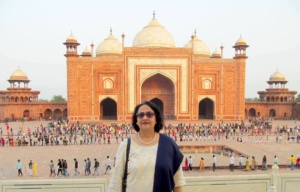 KSC: What do you like most about India, and what not?
KSC: What do you like most about India, and what not?
SA: I love the India I grew up in – the depth and openness of its thought and philosophy, its festivals and foods, music and architecture, its textiles, clothes, colours, landscapes, flora and fauna. It was a rich inheritance. It was far from perfect – there was poverty and violence, injustice and corruption. But there existed an innocence and humility, a kind of fraternity, even liberty and tolerance. While India is more prosperous today, the rise in inequality, intolerance, corruption, violence against women is truly disturbing. India is a different country today – I feel homeless all over again!
KSC: Do you feel that the Indian people do not relate to Indians living abroad in the same manner as Indians residing in other countries relate to India? What is your message to them?
SA: The relationship between Indians who live abroad (the diaspora) and Indians who live in India (but travel extensively worldwide and are just as westernized) has inevitably changed over the years. Since the liberalization of the Indian economy in the 1990s, the country has acquired sufficient foreign exchange reserves. There is no need to tap into the savings of Non-resident Indians. NRIs are no longer relevant to India’s future. Personally, I was responsible for investing large sums of money in Indian companies once the economy opened up. I am delighted with India’s prosperity, but disappointed that wealth has not been distributed more equitably even after all these years. COVID-19 has exposed the limitations of India’s economic and social policies. Unfortunately, this trend is seen in various developed economies too.
Those of us who ended up living abroad, sometimes for reasons beyond our control, continue to feel emotionally attached to the homeland. However, the new generation of Indians, in India or abroad, do not have the same ties, and thus lack the understanding, appreciation or commitment. What is unsettling though is a growing brashness, bordering on arrogance based on ignorance, along with a sense of entitlement. You could say that of the younger generation elsewhere. Confidence is a good thing, Indians are enterprising, inventive and aspirational. That is admirable. A false sense of superiority, however, is alienating – especially in light of India’s rich heritage beyond our imagining. I feel mostly gratitude when I think of the India I grew up in, fills me with joy and humility.
KSC: Tell us about the writers and poets who have influenced you the most and why.
SA: Having admired far too many writers it is not possible to list them all. The question of ‘influence’ is complicated. Being open-minded and empathetic means one can walk in the shoes of others. In the process of self-discovery, however, you learn to walk without any crutches. I am drawn to writing that reflects the human condition, that is spiritual, mystical, redeeming. All great writing is. For example, TS Eliot’s ‘The Wasteland’ is considered one of the great poems in English literature. I admire it, but consider ‘Four Quartets’ to be greater.
So, in no particular order over the years I have read and enjoyed Dickens, Austen, the Bronte sisters, Hardy, Swift, Eliot, Thackeray, Trollope, Woolf, Kipling, Conrad. For my Master’s degree, I specialized in American literature, and so Hawthorne, Melville, Emerson, Thoreau, Twain, Poe, Alcott, James, Faulkner, Hemingway, Bellow, Scott Fitzgerald, Philip Roth, and Toni Morrison were added to my gallery of great writers. I was fond of short stories by Mansfield, Maugham and O. Henry. Tolstoy, Dostoevsky, Pushkin, Chekov, Pasternak were up there along with Proust, Hugo, Flaubert, Mann, Hesse, Sartre, Camus, Kafka. Munro, Lessing, Pamuk, Márquez, Rushdie were later additions. Among poets, the list is long and diverse – Shakespeare, Donne, Milton, Marvell, Blake, Herbert, Wordsworth, Shelley, Keats, Hopkins, Auden, Larkin, Hughes, Rumi, Rilke, Ritsos, Tagore, Akhmatova, Cavafy, Neruda, Szymborska, Milosz, Montale, Paz, Seferis, Tranströmer, Emily Dickinson, Whitman, e e cummings, Parker, Yeats, Eliot, Stevens, Plath, Bishop, Jennings, Angelou, Heaney, Merwin, Glück, Walcott. I have not included all the living writers as then the list will be truly unmanageable. An avid theatre-goer, and having been fortunate to see a great many productions at the Royal Shakespeare Company and the National Theatre, I would include Shakespeare, Beckett, O’Neill, Williams, Shaw, Wilde, Pirandello, Albee, Pinter and Schaffer. Then there is the Indian influence. I have not included the philosophers, thinkers, artists and musicians who have contributed in shaping me.
While my admiration kept growing, influences kept diminishing as I discovered and realized my own voice. These days I enjoy good writing without the anxiety of influence. When a writer creates a world, gifting you with insight – that is influence. The real voyage of self-discovery as Proust said lies in ‘having new eyes’. If I read a poem that has the power to do so, it is influence. I do not feel the need to fall in love with the collected works of the writer. Life can turn on a single image, thought or line.
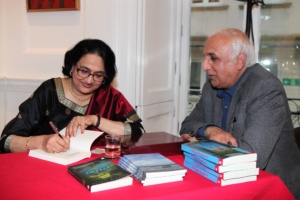 KSC: You have lived, worked, and written in three countries. What kinds of challenges have you faced as a writer in these countries?
KSC: You have lived, worked, and written in three countries. What kinds of challenges have you faced as a writer in these countries?
SA: The world of poetry is surprisingly insular – poets barely talk to each other. And the few who do are the exceptions. Though I was widely published as a poet when I left India, I was widely ignored by the poetry world in the UK when I arrived here. Same experience in the USA. There was little understanding and even less appreciation. While we were required to read Western writers, there was no such reciprocal requirement. Times are changing. There is greater awareness of writing from India, Africa, or South America etc. That awareness is mostly limited to fiction. Poetry has not received the same recognition. It is hugely challenging to acquire name recognition unless you are a major prize winning poet. There were no prizes when I was a young writer. Nor do I place my faith in prizes.
The recent explosion in the publishing industry has made prizes and awards necessary marketing tools. The reality is that not all prize winning writers are as good as they are made out to be. While the prize-winning writers (and their publishers) clearly benefit from such marketing strategies, it has undermined, even destroyed, the open and sustainably competitive environment in which writing (or any other art) can thrive. All great and gifted writers are born rebels, they cannot and do not dance to anyone else’s tune – they live, think and create for themselves. If that freedom does not exist, or is stripped away by governments or publishers who create the market, then what it fosters is mediocrity, not genius. It applies to readers too. If readers are told what to read, they lose the ability to make up their own minds. The freedom to think for oneself is a great gift.
KSC: Do you think politics have negatively influenced the literature being written today? Has politics impacted your writing and world view?
SA: Politics is not new, it is as old as human beings. It has always influenced every aspect of institutionalized human activity – be it in the arts or industry. Growing up in a family that was highly apolitical, always believed in doing the right thing, I never learnt the art of being political. I may understand the world better these days, but still believe in the essential freedom and goodness in being human. It is a blessing to be able to find and hold on to one’s view of the world.
KSC: Do you believe that female writers have unique challenges? If yes, what are those, and how did you overcome them?
SA: Yes, female writers face special challenges, growing up in ways that constrain their work as writers. Securing a room of one’s own, let alone one with a view, is far more challenging than one can imagine, especially as a young woman. In order to write you need time, money and energy. I have always struggled with time and energy. When I left home, the lack of a secure source of income made life utterly precarious. And, after a doctoral degree from Oxford, there were no teaching or research positions available anywhere, not even in India. One thing led to another and I ended up in the City. I then had an income but no time or energy left to write. I took early retirement to write, but by then I was already suffering from extreme exhaustion. Writers these days have more avenues to secure funding. If such financial support had been available to me, wonder how it would have influenced my writing or what sort of a writer I would have been? I have always placed my trust in Life and am grateful for whatever opportunity I have had to write.
KSC: Coming from an Odiya background, what are your recommendations for bringing exposure to Indian literature, written in the various Indian languages, to readers in the West?
SA: The wide availability of good and accessible translations is the foundation. The rest will follow as long as there are a few champions to make things happen.
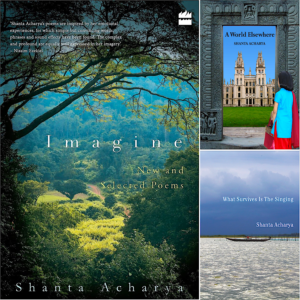 KSC: Tell us about your recent books. If you would like to recommend reading one of your books, which one would that be?
KSC: Tell us about your recent books. If you would like to recommend reading one of your books, which one would that be?
SA: It’s like asking a mother to choose between her offspring. I have to recommend at least three – they all matter. Imagine: New and Selected Poems gathers in one book a generous selection of poems from all my five previous collections in addition to new poems. What Survives Is The Singing is my latest collection of poems and A World Elsewhere is my first novel that sheds light on my poetry.
KSC: What are you writing now?
SA: I am writing my second novel and working on a new collection of poems. The poems keep coming and as long as they do I consider myself blessed.
KSC: You have published seven collections of poetry. Please share one of your favorite poems from each of them.
SA: See below
KSC: What advice would you give to new writers and poets?
SA: If you must write, you must learn to live life fully in order to find your true self. It might take a while. Be patient. To find your voice, you must read widely, with an open mind. Write about things you know and are passionate about. When rejections/ disappointments come, as they will and do, explore yourself deeper, get lost in your writing, bringing out the best you have to offer.
KSC: What do you think of Life and Legends?
SA: Any person or group that promotes literature and poetry wins my vote and my deep admiration. Thank you for giving me this platform.
For Shanta Acharya’s poems click HERE
More about Shanta Acharya at – www.shantaacharya.com
.
****

